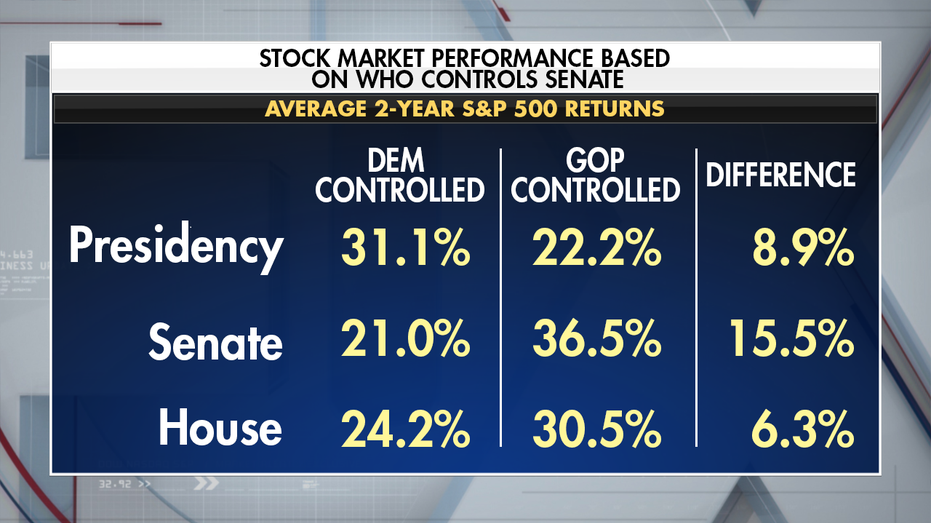Tight Senate races more important for stocks than presidency: analysts
Bulls prefer a GOP-led Senate
The battle to win control of the Senate is tight in key states and may be more important for the future of the stock market than the presidency.
“Senate control historically is associated with the greatest difference in two-year returns, with bulls preferring GOP control,” wrote a team of New York-based Wells Fargo Securities analysts led by Christopher Harvey.
TRUMP'S CORONAVIRUS INFECTION EPITOMIZES 'OCTOBER SURPRISE,' BUT IMPACT REMAINS ENIGMA
Republicans have held the Senate in 12 of the last 36 election cycles with the S&P 500’s two-year total return, which assumes reinvested dividends, averaging 36.5%. The 24 Democrat-controlled Senates, meanwhile, have yielded an average total return of 21%.

With 29 days until the election, the polls show Democrats and Republicans each locked into 46 Senate seats apiece with eight seats up for grabs.
Republican Sens. Joni Ernst of Iowa, Martha McSally of Arizona and Thom Tillis of North Carolina are all trailing in the polls by at least 5 points, according to RealClearPolitics, while Sen. Lindsey Graham of South Carolina finds himself in a dead heat.
TRUMP’S ‘SECRET VOTERS’ MAY GIVE HIM AN EDGE: ANALYSTS
“On Nov. 3 there is a chance that the Republicans could see their 53-47 majority disappear,” the Wells Fargo analysts wrote.
The vulnerability of those incumbents has traders on the betting platform PredictIt pricing in a 67% chance the Senate flips to the Democrats.
Analysts at Wells Fargo caution that along with congressional control, there are other drivers of market returns beyond party identity. For instance, the 2008 financial crisis would’ve likely occurred no matter who was in office as it was a “catastrophe that was many years in the making.”
CLICK HERE TO READ MORE ON FOX BUSINESS
This year, ongoing stimulus plans to further aid the U.S. economy hard hit by COVID-19 continue to be a major driver of investor sentiment.
The benchmark S&P 500 has gained 3.64% this year through Friday, battling back from a 34% swoon that occurred in late February and March.




















